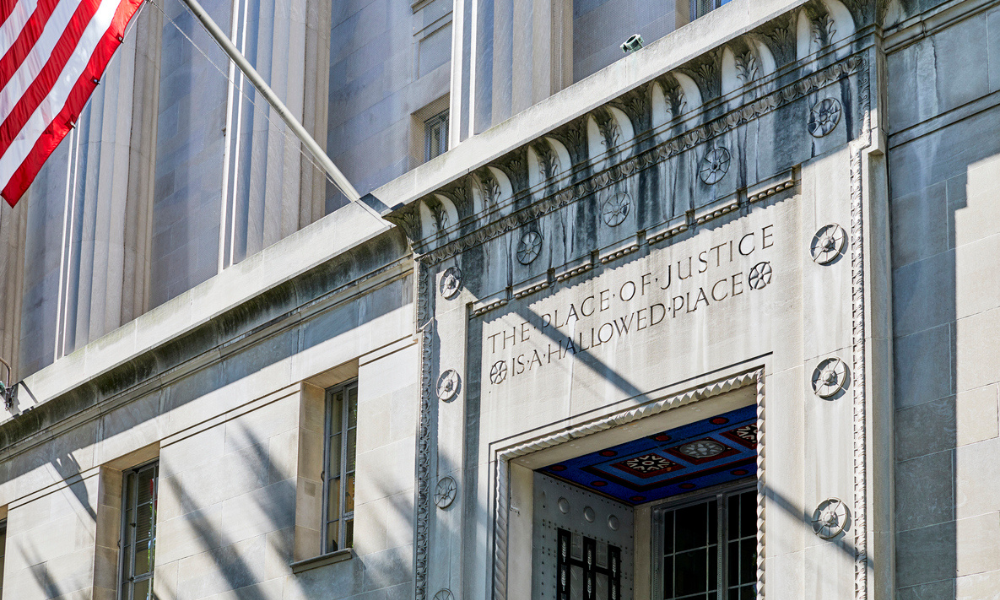Australia was found in breach of its human rights obligations in the decision which may have an effect around the world
.jpg)
DLA Piper has won for an Australian transgender woman in a case before the UN Human Rights Committee (UNHRC) that found Australia in breach of its human rights obligations.
The woman, identified only as “Ms G,” applied to the NSW Registry of Births, Deaths and Marriages in 2006 to have her sex changed on her birth certificate – but her application was rejected. The registry said that since she was married to her female partner, her application would only be granted if the couple divorces.
Ms G then filed a complaint with the UNHRC in 2011. The committee ruled this month that Australia’s refusal to amend the woman’s birth certificate violated her rights to privacy, and family, as well as discriminates against her based on “marital and transgender status.”
“This is an incredibly important decision. Ms G was left in an untenable position, having to choose between her gender identity or her marriage. No one should be forced to make such a choice. There are many trans individuals in similar situations, both in Australia and globally,” said Nicolas Patrick, DLA Piper pro bono partner.
"We hope that this decision will provide guidance to governments on the correct application of human rights standards and will ultimately benefit trans people around the world,” he said.
International human rights law protects peoples’ right to gender identity and its corresponding identity documents. Australia cited the Marriage Act of 1961, which specifies that marriage is only between a man and a woman, led to the restriction. The UNHRC has called on Australia to change its law.
“This decision makes it clear that the Human Rights Committee considers gender identity, and the ability to change one’s legal identity, to be of fundamental importance. The possibility of an inconsistency with marital laws is not a sufficient reason to refuse to change someone’s birth certificate or interfere with their marital status,” said Emily Christie, DLA Piper senior associate, who represents Ms G.
Ms G said that it is the job of the government to record reality, not to direct it.
“It’s a win for common sense and a win for freedom, fairness and human dignity in relationships. Governments have made it so that birth certificates are no longer just a record of birth but proof of identity; it therefore needs to be an accurate reflection of reality, of who you are now. It’s the job of government to record reality, not direct it,” she said.
Related stories:
Global law firms give backing to LGBT community
Top firms honoured for commitment to equality
The woman, identified only as “Ms G,” applied to the NSW Registry of Births, Deaths and Marriages in 2006 to have her sex changed on her birth certificate – but her application was rejected. The registry said that since she was married to her female partner, her application would only be granted if the couple divorces.
Ms G then filed a complaint with the UNHRC in 2011. The committee ruled this month that Australia’s refusal to amend the woman’s birth certificate violated her rights to privacy, and family, as well as discriminates against her based on “marital and transgender status.”
“This is an incredibly important decision. Ms G was left in an untenable position, having to choose between her gender identity or her marriage. No one should be forced to make such a choice. There are many trans individuals in similar situations, both in Australia and globally,” said Nicolas Patrick, DLA Piper pro bono partner.
"We hope that this decision will provide guidance to governments on the correct application of human rights standards and will ultimately benefit trans people around the world,” he said.
International human rights law protects peoples’ right to gender identity and its corresponding identity documents. Australia cited the Marriage Act of 1961, which specifies that marriage is only between a man and a woman, led to the restriction. The UNHRC has called on Australia to change its law.
“This decision makes it clear that the Human Rights Committee considers gender identity, and the ability to change one’s legal identity, to be of fundamental importance. The possibility of an inconsistency with marital laws is not a sufficient reason to refuse to change someone’s birth certificate or interfere with their marital status,” said Emily Christie, DLA Piper senior associate, who represents Ms G.
Ms G said that it is the job of the government to record reality, not to direct it.
“It’s a win for common sense and a win for freedom, fairness and human dignity in relationships. Governments have made it so that birth certificates are no longer just a record of birth but proof of identity; it therefore needs to be an accurate reflection of reality, of who you are now. It’s the job of government to record reality, not direct it,” she said.
Related stories:
Global law firms give backing to LGBT community
Top firms honoured for commitment to equality







